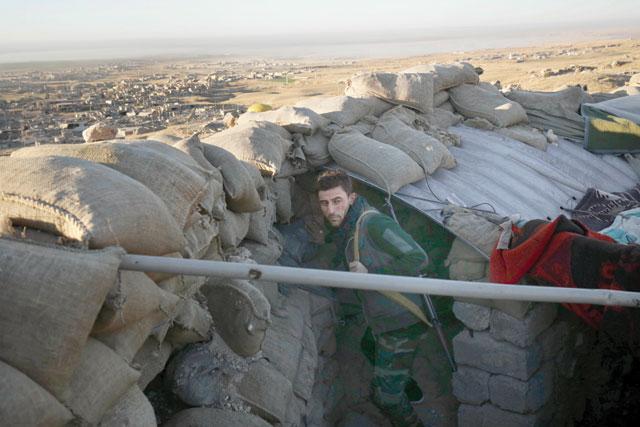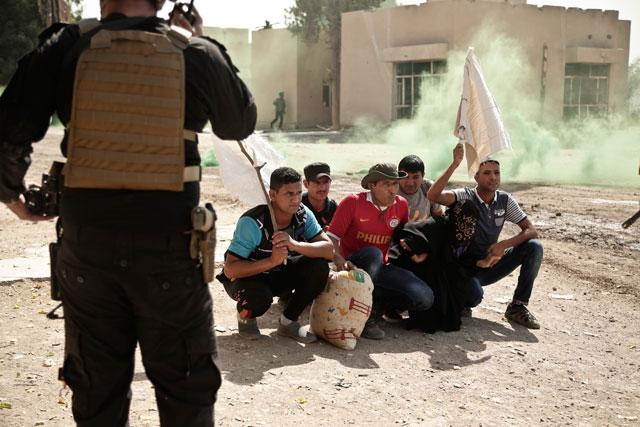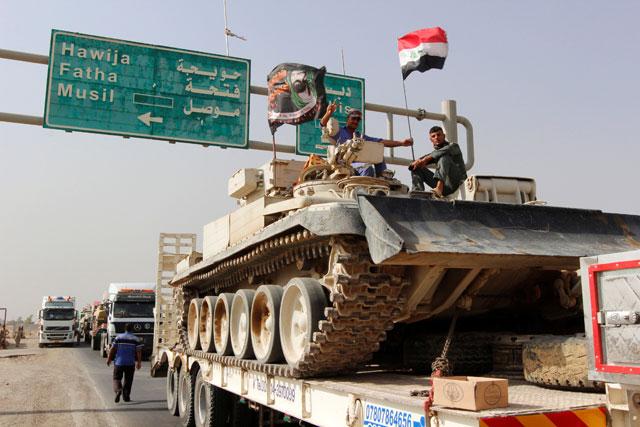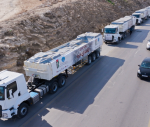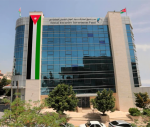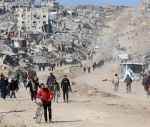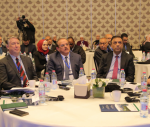You are here
Iraqi Kurdish troops take more ground east of Daesh-held Mosul
By AP - Aug 16,2016 - Last updated at Aug 16,2016
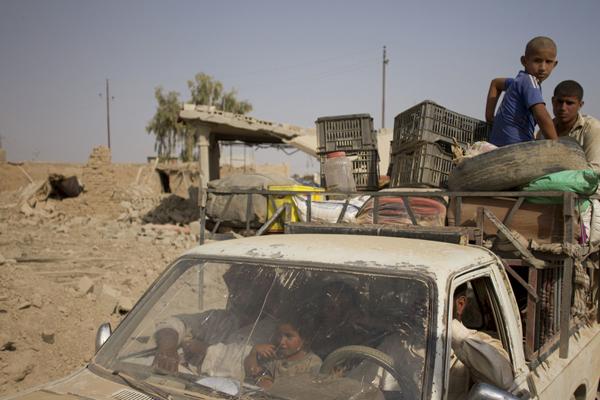
Civilians flee villages outside Mosul the day after Iraqi Kurdish forces launch an operation east of the Daesh-held city in Iraq, on Monday (AP photo)
QARQASHAH, Iraq — A small unit of Kurdish peshmerga forces huddled in an abandoned home on the edge of Qarqashah, one of a dozen villages east of the Iraqi city of Mosul that the peshmerga captured from the Daesh terror group this week. The advance aims to lay the groundwork for the battle for Mosul, Iraq's second largest city, which has been held by Daesh militants for more than two years.
Like almost all of the villages retaken this week, Qarqashah is small and was almost entirely empty of civilians. This allowed the US-led coalition to clear territory using air strikes, rather than relying on ground troops to engage in street-to-street battles. But peshmerga military leaders said their forces still took significant casualties.
In Qarqashah village alone, peshmerga commanders estimated they lost 10 men. Even after the operation was declared complete on Monday, fighting was ongoing.
Maj. Gen. Hama Rasheed sat on a plastic chair inside the simple home his men were using as a base. Outside, his fighters exchanged fire with Daesh militants holed up in a neighboring village.
Fields of dead grass burned from Daesh-launched mortar rounds. Kurdish and coalition forces stationed atop a nearby hill responded with volleys of artillery fire onto the Daesh fighters below.
"The main aim of the operation was to open a strategic road to the Christian areas of the Nineveh plain," said Brig. Gen. Dedewan Khurshid Tofiq, one of the peshmerga commanders overseeing the operation. The Nineveh plain stretches north and east of Mosul.
Tofiq added that a bridge, taken on Monday and leading to southeastern Mosul, could facilitate a troop buildup along an eastern Mosul front once it is repaired.
The operation, which lasted just under 48 hours, is expected to be one of many operations aimed at encircling Mosul, the last major Daesh urban stronghold in Iraq.
The long battle for Mosul is continuing amid violence in much of the rest of the country. At least 15 people have been killed since Monday in a series of separate attacks across Iraq.
The deadliest attack occurred on Monday near the town of Rutba in the western province of Anbar, where militants fired mortar rounds on army troops, killing an officer, seven soldiers and a civilian, the Joint Military Operation Command said in a statement.
Two attacks struck the Iraqi capital, Baghdad, on Tuesday. In the capital's southern Dora neighbourhood, drive-by shooters killed a justice ministry employee, police said. In the southwestern neighbourhood of Amil, a bomb ripped through a commercial area, killing three civilians and wounding seven others, according to police.
Another bomb struck a patrol of anti-Daesh Sunni tribal fighters in Madain, about 20 kilometres southeast of Baghdad, killing two fighters and wounding five others, police said. Medical officials confirmed the casualty figures. All officials spoke on condition of anonymity as they were not authorized to release the information.
Daesh captured large areas of northern and western Iraq in a 2014 shock offensive. It is estimated that Daesh-held territory in the country has now shrunk by two-thirds, following an Iraqi campaign backed by the US-led coalition. The fighting has displaced millions of civilians.
Along berms marking the peshmerga's new frontline with Daesh, convoys of hundreds of civilians fleeing villages outside Mosul drove through the fine desert sand in the intense summer heat.
In one convoy, most of those fleeing were farmers. When Hameeda Muhammed's family was stopped by security forces to search their belongings for weapons she unloaded the animals that had died of thirst along the trip. A dead calf's body was dumped on the side of the road along with seven chickens.
"Under Daesh, we stayed alive thanks to these animals," Muhammed said looking over her dead livestock.
Under Daesh, Muhammed's family quickly became too poor to buy food and was forced to turn to subsistence farming, she said.
"I hope at whatever camp we go to there will be more chickens there," she added.
At Kalak base, from where the offensive was launched, peshmerga reservists were arriving in civilian cars on Monday to reinforce troops at the front.
"Normally we guard oil facilities," said Islam Tamar Khan, a 28-year-old from Dohuk, a city in Iraq's semi-autonomous Kurdish region. "But we got a call last night saying to come here immediately."
Behind him four Iraqi police helicopters stood parked on the highway. The pilots said since 2014 they have been evacuating soldiers injured during peshmerga operations because the Kurdish forces are short of military helicopters.
"All that matters is that you have the will to fight," said Khan, the Dohuk reservist. "It doesn't matter if you show up in boots or in slippers."
Related Articles
QARQASHAH, Iraq — In the buildup to a long-awaited offensive on the city of Mosul, Kurdish forces are seizing new territory in northern Iraq
WARDAK, Iraq — Kurdish peshmerga forces launched a fresh attack on Daesh militants early on Sunday as part of a campaign to capture Mosul, t
BAGHDAD/PARIS — A booby-trapped drone launched by the Daesh terror group militants killed two Kurdish peshmerga fighters and wounded two Fre


